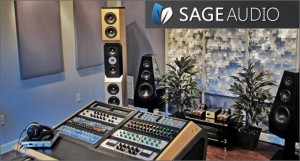 SAGE AUDIO is a mastering studio based in that famous and historic musical city of the USA Nashville, Tennessee. Home of RCA studio B, the place where Elvis recorded much of his classic material, and hub of country music in general. Well, yes, here at Igloo, country music isn’t exactly the first genre section we tend to reach for when browsing for music, but then again, in terms of commercial success, you can’t ignore it. Commercial success goes hand in hand with high quality sound, so the Nashville tag is quite a statement. And anyway, what’s wrong with a bit of Shania Twain now and then? No need to answer that, I know what you all get up to at home.
SAGE AUDIO is a mastering studio based in that famous and historic musical city of the USA Nashville, Tennessee. Home of RCA studio B, the place where Elvis recorded much of his classic material, and hub of country music in general. Well, yes, here at Igloo, country music isn’t exactly the first genre section we tend to reach for when browsing for music, but then again, in terms of commercial success, you can’t ignore it. Commercial success goes hand in hand with high quality sound, so the Nashville tag is quite a statement. And anyway, what’s wrong with a bit of Shania Twain now and then? No need to answer that, I know what you all get up to at home.
I tried their online mastering services for a project I was working on to see how they measure up to other services I have used. I run a small independent label, during the course of which I have to source and procure mastering for every release, well obviously I do. I’m not saying this for any other reason then to establish that I have some modicum of experience when it comes to this sort of thing. I also know how incredibly important it is to get right, and how often and easily it can be got wrong. The genre of music we put out can be generally described as ‘electronic’, influenced by the UK underground bass music scene. Not exactly Hank Williams now is it? The project I used in this review is a genuine EP due for release from one of our artists, Gyu. It’s a sparse, dark and ethereal sounding dubstep/garage/ambient crossover. Would this be a curve-ball for a Nashville based mastering studio?
I used the online service, which was the only real option considering about 4,500 miles and several billion tons of water stand between us in the physical world. To get my tracks to the good people at Sage, they have kindly provided a web based upload system. First, you need to create an account, that omnipresent task that faces us all on a daily basis now that we truly live in the age of the global network. I suppose it’s a small price to pay for the benefit of having a global option as opposed to a local, or at best national option that we were all constrained to in the old days, right? So now with my account all set up, and having logged on, I am neatly led through the process of uploading tracks via their system. It’s a nice looking system as it happens, very easy to use, but browser based upload systems can have a slight tendency to be a bit clunky. The first track uploaded with no problems at all, unless you count the somewhat erratic behavior of the progress bar. To be fair, there is a little note beneath it assuring the user that the bar may jump back and forth, but this in no way affects the upload of your file. Cool, no worries then. The second track however decided it wasn’t quite so happy to be disassembled into it’s constituent bits and bytes, sent half way across the world as electronic pulses and re assembled from representations of 0s and 1s at the other end. It was quite late by that time so I swore a bit then shut my laptop and went to bed. The next morning the remaining tracks behaved very reasonably. I should say at this point that the online account system is actually really well implemented. You can easily see what you have already uploaded, and once you have saved the details of a track, you can change the file associated with those details, or, as in my case, if the track doesn’t upload properly you can re-upload without having to fill in all the details again, that information is already stored. Along with the track info, you can add notes such as tracks that have a feel or sound you’d like to use as a reference point, which is a really nice touch. There is also a direct messaging system that allows you to communicate with the engineer who is working on your tracks. In my experience, the engineer, who’s name was Steve Corrao, always got back to me very promptly. They definitely check their inbox regularly.
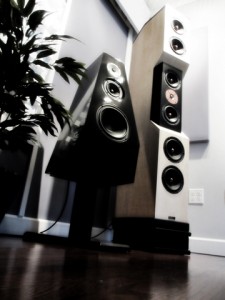 Once the tracks were up on their system, they were mastered and ready for approval within a couple of days. Five tracks! That’s certainly the quickest turnaround I’ve experienced. But were they any good? Will this bass heavy yet delicate and intricate electronically produced music be too foreign to a Nashville mastering house to expect its full subtlety and detail to be recognized and catered for? As lovers of electronic music, we all appreciate the intricacies of such music; the subtle changes in texture, the shifting frequencies of hi hats, the low basslines and painstakingly created synth sounds and so on, all working together, weaving in and out of each other to create their aural magic. Could I really expect the same amount of awareness from Sage Audio, deep in the heart of the Country capitol of the world? Well, yes I bloody well could! These masters are outstanding. Each track has been completely lifted without losing any of the balance or dynamic contrast. The bass and drums both really kick through the mix, and don’t seem to interfere with each other, or anything else in the mix. This is partly due to the fact that Gyu (A.K.A. Guy Fforde) is an extremely accomplished producer, and knows what he’s doing in terms of arranging sounds and being aware of every element’s space within a track, but a well produced track is only a canvas for a mastering engineer, a good starting point.
Once the tracks were up on their system, they were mastered and ready for approval within a couple of days. Five tracks! That’s certainly the quickest turnaround I’ve experienced. But were they any good? Will this bass heavy yet delicate and intricate electronically produced music be too foreign to a Nashville mastering house to expect its full subtlety and detail to be recognized and catered for? As lovers of electronic music, we all appreciate the intricacies of such music; the subtle changes in texture, the shifting frequencies of hi hats, the low basslines and painstakingly created synth sounds and so on, all working together, weaving in and out of each other to create their aural magic. Could I really expect the same amount of awareness from Sage Audio, deep in the heart of the Country capitol of the world? Well, yes I bloody well could! These masters are outstanding. Each track has been completely lifted without losing any of the balance or dynamic contrast. The bass and drums both really kick through the mix, and don’t seem to interfere with each other, or anything else in the mix. This is partly due to the fact that Gyu (A.K.A. Guy Fforde) is an extremely accomplished producer, and knows what he’s doing in terms of arranging sounds and being aware of every element’s space within a track, but a well produced track is only a canvas for a mastering engineer, a good starting point.
I listened to these five tracks on all sorts of systems to see how they would shape up. It’s all very well for a track to sound amazing on a system with a decent amplifier and speakers, but it should also sound good on a tinny FM radio in mono with one speaker covering a small frequency range. Well alright, not much actually sounds good on one of those things, but it should be recognizable at least, the track should not rely on a full range speaker and amplifier system that can physically shake you with bass to be itself. Most of the time at least.
Built-in speakers on my laptop ::
Everything is there, the tracks are very much themselves, nothing stands out as being overbearing or harsh. The various elements are detectable as they are introduced, and there is a sense of fullness. I’m obviously well used to these speakers, so I probably internally compensate for the substandard sound.
Kitchen CD player ::
This is a very bad stereo, really cheap with no frequency range at all. Again, I’m impressed with the overall fullness of the sound. The speakers aren’t hissing and flapping about at all, I can actually listen to it. Usually with dubstep or other very bass-centric music, this stereo just loses it.
Pioneer Amp and Technic speakers ::
I’ve had this setup since I was a young man. Let’s say I can definitely upset the neighbors by cranking this system. It is great for getting maximum bass out of dance tracks, maybe a bit too bass heavy in it’s coloration of the sound, but for sheer volume and power in the low end, it’s alright. This is heavy! Really great sound on this system all the way through the frequencies. It still retains it’s subtleties and clarity in the mid and top ranges. I felt genuinely excited on this listen.
Akai combo stereo ::
This is my wife’s stereo, she’s also had it for years. It sits under our TV and is the audio system for DVDs now, but it still gives a pretty good sound for a twenty year old bit of kit. This stereo can be a bit muddy, it has plenty of low-mid end but lacks a bit of clarity in the upper mids and lower frequencies. Again, the tracks sounded good, a bit less defined then the previous system maybe, but comparable to all the other stuff I play on it.
An exhaustive and scientific testing process I think you’ll agree. The conclusion of it all is that these masters are good. A lot better then most I’ve come across, and at least as good as any I’ve used in the past. My colleagues and I at Drawn Recordings are very happy to be releasing this EP (Gyu, Supreme Being, release date October 22, 2012). You can give it a listen for yourself and make your own mind up, don’t just take my word for it.
Before mastering GYU’s “Brother”
Audio Player
Sage Audio master of GYU’s “Brother”
Audio Player
Before mastering GYU’s “Falling Down”
Audio Player
Sage Audio master of GYU’s “Falling Down”
Audio Player
There are a lot of mastering services available out there, it can be something of a minefield finding the right one. Ultimately, the mastering decision is a personal one. Mastering is an art rather then a science, and no one version is ever the ‘correct’ one, it’s always an interpretation based on the ears and experience of the engineer. The trick is to find someone who does a job that suits you, and work with them. Over time you will build up a relationship and a mutual understanding of what’s required. But of course, you need to start the process somewhere, and finding a mastering studio that is happy to listen to you and pass feedback back and forth is absolutely essential. You need to know that you’re thoughts on the matter will be taken into account, and the engineer will be flexible with their crafting. You also need to know that the end product is going to be of a high standard, comparable to that of other commercial releases. Sage Audio provide all this more then adequately. I’m not going to go into the technical aspect of what they use, frankly I wouldn’t care if they used a thirty year old walkman as long as the results are good. I know some people are concerned about gear though, and if you are, there are details on their website about the equipment they have—www.sageaudio.com. Of course, the gear is only as good as the engineer who uses it though.
I am personally very happy with the result we ended up with. Communication was prompt, direct and useful, there are certainly the right ingredients to build a good working relationship there. Successful mission.
For more information about Sage Audio, visit their website at www.sageaudio.com.






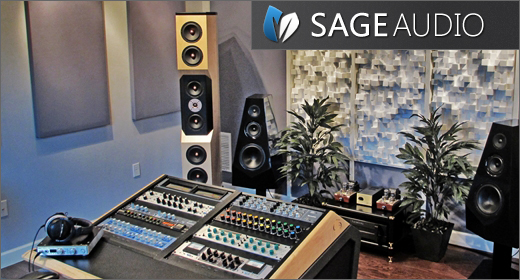

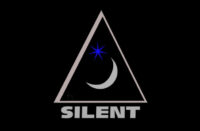

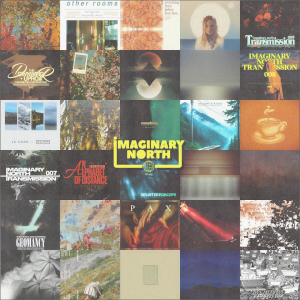
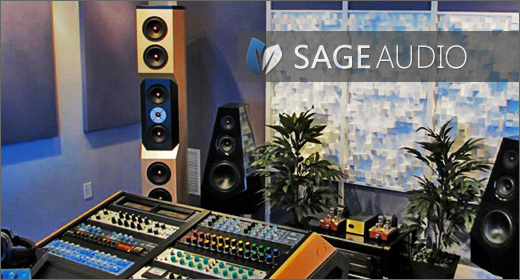
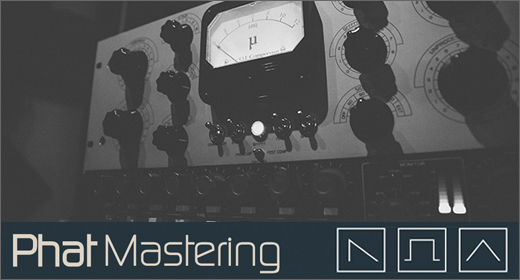





![Hasbeen :: Bunker Symphonies II (Clean Error) — [concise]](https://igloomag.com/wp/wp-content/uploads/2025/04/hasbeen-bunker-symphonies-ii_feat-75x75.jpg)
![Extrawelt :: AE-13 (Adepta Editions) — [concise]](https://igloomag.com/wp/wp-content/uploads/2025/04/extrawelt-ae-13_v_feat-75x75.jpg)
![Beyond the Black Hole :: Protonic Flux EP (Nebleena) — [concise]](https://igloomag.com/wp/wp-content/uploads/2025/04/beyond-the-black-hole-protonic-flux_feat-75x75.jpg)
![H. Ruine, Mikhail Kireev :: Imagined / Awakenings (Mestnost) — [concise]](https://igloomag.com/wp/wp-content/uploads/2025/04/h-ruine-mikhail-kireev-imagined-awakenings_feat2-75x75.jpg)


![Squaric :: 808 [Remixes] (Diffuse Reality) — [concise]](https://igloomag.com/wp/wp-content/uploads/2025/04/squaric-808-remixes_feat-75x75.jpg)

